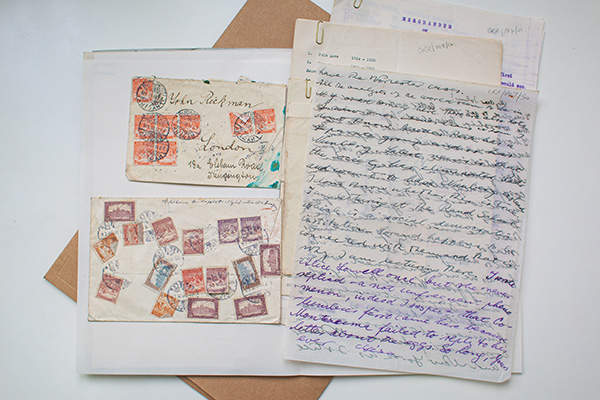Archives History
Brief History of the collections and examples of how the archives have been used
On 30 October 1913 Ernest Jones created the London Psychoanalytical Society with fifteen members. It soon ran into internal difficulties. At the end of the war Jones dissolved it and it was reconstituted as the British Psychoanalytical Society on 20 February 1919. A period of rapid institutional development followed. The International Journal of Psychoanalysis was founded in 1920, the Institute of Psychoanalysis and International Psychoanalytical Library in 1924 and then the London Clinic in 1926. Between 1927 and 1929 Jones successfully represented psychoanalysis in a special committee of the British Medical Association to investigate the claims of psychoanalysis as a bona fide treatment. The records of the Journal, the Clinic and Jones’ representations to the BMA all form an important part of the collections.
Ernest Jones remained President of the British Society from 1919 to 1944. During his active involvement in the Society, he encouraged Melanie Klein to move to London in 1926 and from 1934 onwards he oversaw arrangements for the emigration of European Jewish analysts, largely to America and England, amongst them the Freuds. With the emigration of European psychoanalysts to London, the British Society and the Institute became the foremost psychoanalytic organisation in the world; English became the first language of psychoanalysis. The problem of integrating analysts from a different psychoanalytical tradition within the British Society played a large part in the famous Controversial Discussions and Pearl King and Riccardo Steiner’s book, The Freud-Klein Controversies 1941-45 (1991) drew extensively on material held in the archives. In addition, after Jones retired from the Presidency of the Society he began in 1947 writing his biography of Freud (published 1953-57) and this work is also recorded in the archives.

